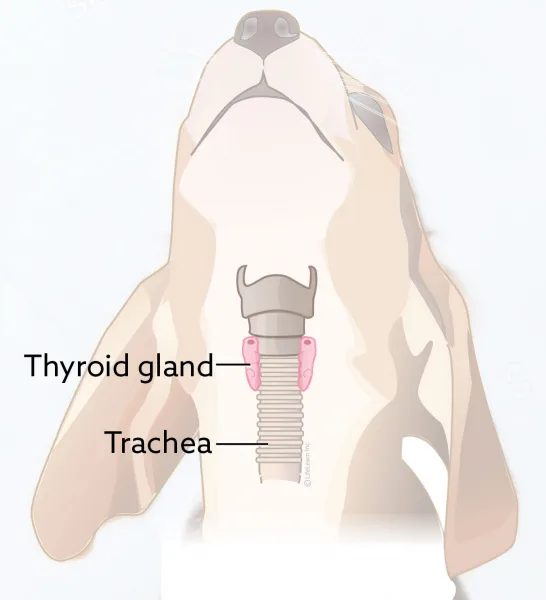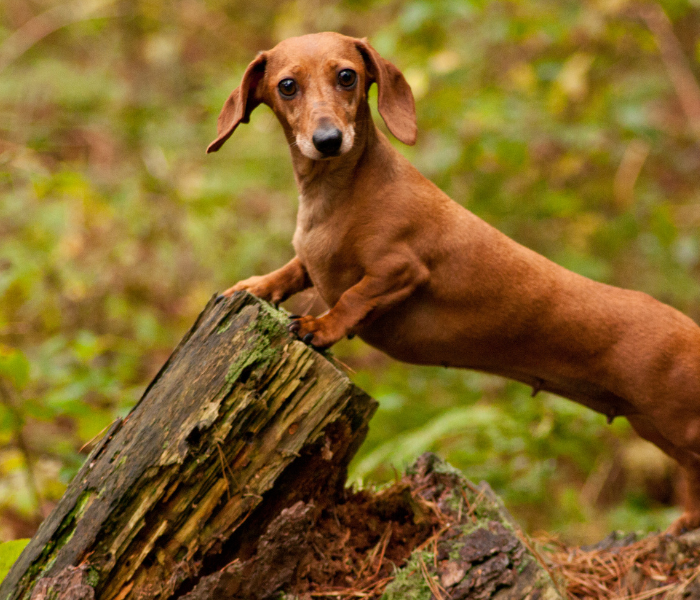Introduction:
Dachshund Hypothyroidism: As a loving dachshund owner, you desire to provide the best for your loyal companion. And, among the numerous concerns for their well-being, dachshund hypothyroidism takes center stage. This debilitating condition, caused by an underactive thyroid gland, can have severe repercussions on your pet’s health. So, buckle up, as this guide unravels everything you need to know about avoiding and treating dachshund hypothyroidism.
What is Dachshund Hypothyroidism?
Hypothyroidism in dachshunds is a hormonal imbalance caused by an inadequate production of hormones by the thyroid gland. This gland regulates the body’s metabolism, making its proper functioning crucial for your pet’s health.
Symptoms: Spotting the Warning Signs
The symptoms of hypothyroidism in dachshunds can initially go unnoticed but can escalate quickly. Keep a watchful eye for:
- Unusual weight gain
- Lethargy
- Dry and flaky skin and coat
- Intolerance to cold temperatures
- Muscle weakness
- Reduced appetite
- Slowed heart rate
If you suspect that your furry friend is struggling with hypothyroidism, a prompt visit to the vet is necessary.
The Root Causes: What Triggers Dachshund Hypothyroidism?
Several factors can lead to hypothyroidism in dachshunds, including:
- Autoimmune disorders
- Congenital defects
- Radiation exposure
- Thyroid gland removal surgery
Prevention is Better than Cure: Ways to Reduce the Risk
Although there’s no foolproof method to prevent hypothyroidism, you can minimize the risk by:
- Maintaining a balanced diet
- Keeping your pet’s weight in check
- Minimizing radiation exposure
- Scheduling regular vet check-ups
Diagnosis: Uncovering the Truth

Diagnosing hypothyroidism in dachshunds can be challenging as its symptoms mimic other conditions. However, your vet will most likely begin with a blood test to assess hormone levels, followed by a physical examination and inquiries about your pet’s medical history and symptoms.
Treatment: A Path to Recovery
The good news is that hypothyroidism in dachshunds is treatable. The standard treatment involves daily medication to supplement the hormones not produced by the thyroid gland. Your vet will work with you to determine the appropriate dosage and regimen to ensure that your pet receives the necessary hormones.
In severe cases or when medication is ineffective, surgery to remove the thyroid gland may be necessary. However, this is only a last resort and carried out under exceptional circumstances.
Conclusion
Dachshund Hypothyroidism is not something to be taken lightly. It’s a complex ailment that, if left untreated, can cause a multitude of health issues for your furry friend. Fortunately, with proper care and attention, it can be managed and your dachshund can go on to lead a fulfilling, energetic existence.
It’s critical that pet owners stay vigilant and cognizant of the telltale signs, taking prompt action to mitigate the condition’s progression. Prevention is key, but if the worst should happen, early intervention is vital.
By forging a close partnership with your veterinarian and adhering to their prescribed treatment regimen, you’ll be giving your dachshund the best chance of a complete recovery. With perseverance and dedication, you’ll soon have your companion back to their playful, waggy-tailed self!
References:
- “Hypothyroidism in Dachshunds.” PetMD, PetMD, 2020, www.petmd.com/dog/conditions/endocrine/c_dg_hypothyroidism.
- “Hypothyroidism in Dogs: Symptoms, Diagnosis, and Treatment.” American Animal Hospital Association, American Animal Hospital Association, 2021, www.aahanet.org/PublicDocuments/Hypothyroidism.pdf.
- “Hypothyroidism in Dogs: What You Need to Know.” WebMD, WebMD, 2021, pets.webmd.com/dogs/guide/hypothyroidism-in-dogs#1.
- “Dachshund Health Problems: Thyroid Issues.” Dachshund-Owners.com, Dachshund-Owners.com, 2021, dachshund-owners.com/dachshund-health-problems/dachshund-thyroid-issues/.





One thought on “Preventing and Treating Dachshund Hypothyroidism”